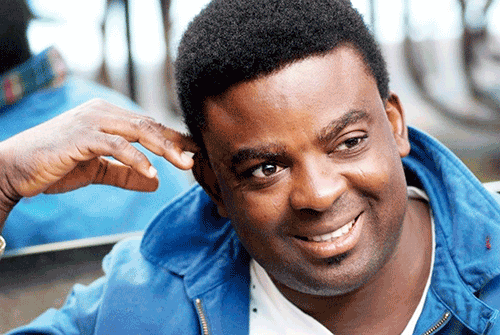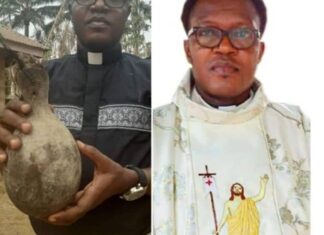Kunle Afolayan’s October 1 film is still tickling the fancy of viewers all over the world, like his other films, The Figurine and Phone Swap. In this chat with Assistant Life Editor, TERH AGBEDEH, the filmmaker who knows exactly where he is going and has been on that road for sometime talks about his craft.
Why October 1?
It is a significant date in Nigeria’s history. Also because I am just a storyteller, the film happens to be set against the backdrop of Nigeria’s independence. There is no way we can tell our story without having a feel of that period.
You are bringing in drama and action into one mix; how does that work out?
It has been very difficult; but I am a visionary, and once I dream I always try to actualise it. It is a big film, I mean, I think it is going to get a new history in the record of what Nigerian cinema has achieved ever. This film does not only deal with Nigeria’s history, but also the younger generation. In fact, let me start by saying that the old generation, especially those who were part of the independence, would be able to see themselves in the story. Some of them will see it and blame themselves for taking part in where we are today, while some of them will see it and say, yeah, I am one of them. For the younger generation, it is also a good platform because a lot of them really don’t know the story of Nigeria – where we are coming from and how we got here. All this we tried to showcase. So, it is not just an entertaining film; it is also informative.
Before the shoot, you put out a notice for costume and props; did you get the kind you were looking for?
Eventually, yes, and most of them were bought. In fact, they were not bought in Nigeria; but from America and London. I bought a television of 1940 and 1950 from the United Kingdom and the United States. I bought handcuffs, jailer keys, helmet and colonial helmet from abroad because they are not available here. Then we were looking for vehicles and we realised that Nigerians don’t even archive stuff; we just destroy – we have destroyed almost everything we have that is tied to our history. But luckily, there are some people who still have passion for some of these things. Thank God for social media, and those we couldn’t get, we made them up. Thanks to Pat Nebo; he is the production designer who was able to come up with a lot of stuff. We bought a lot of Raleigh bicycles, too. Thanks to Deola Segoe for making the colonial uniforms, the police costume, which were quite difficult to do. So, a lot went into this film and I think it is worth it.
Deola Segoe also played a part in the film.
Well, I just wanted a fashion line that would partner with the film. But every time I was in front of her, I saw a round face that looked like a Kuti. She has this bonny cheek, and each time I researched Funmilayo Ransome-Kuti, I told her, you actually look like Fela’s mother, and we would joke about it. And I said, would you like to play this role? I put it out on Twitter.com and said if you think you look like Fela’s mother, come forth. We couldn’t find anybody. But it took me weeks. It took even other people’s intervention to convince her to play that role. I honestly think she is the best thing that happened to that role.
You look different since you started shooting. What is responsible for that?
I also featured in the film; I played a farmer. This (me with beards) is even a cleaner guy. This is for Dazzling Mirage, which is Tunde Kelani’s film. I am also featuring in that. But Agbekoya is the role I play in October 1, a farmer with tribal marks. I had to leave my hair. There are some actors in the film whom I had to ask to leave their hair and beards for almost a year, so they could just get in that character.
Who made you up?
Lola Maja is our consultant, and some young costumiers.
Was she in The Figurine too?
Yes.
Because you mentioned documentation, lack of it actually. So we are wondering, what are you going to do with all that stuff you got for the shoot?
Well, now that we got them, we are keeping them just in case we have other people who want to do period pieces. We have a big production company, so we do rentals as well, like all those bicycles and, as a matter of fact, we intend to have exhibitions during the premiere where everybody will see all the things that went into this film. We will invite some of those who gave us their vehicles on loan, to come with their vehicles, and we will display them.
Would you say that you belong to the new or old Nollywood?
I am just making film, and I don’t know if it is new or old. This is what I have been doing since, and as a filmmaker, this has always been my aim and objective. You know, that is what I have done for this long. Yes, it has been different eras in different places, from the days of Ade Love telling love stories with low quality film and now people are trying to upgrade. But the low quality ones will always be there. The celluloid bit will still be there, and those who want to do international films that will cut across will always be there. But this idea of celebrating Nollywood at 20 is what I totally do not understand. I am a filmmaker and I am just going to keep doing that.
What do you say when people compare what you are doing now with what you did with The Figurine?
Well, I will say it is the same thing, except that now, it is a bigger story and the reason I am doing this bigger story is because, in a way, I have been able to capture the territory and I want to take it to the next level. I want people out there to know that you don’t need a million dollars to have your film premiered in Toronto or in Berlin or have Oscar nominations. We are just trying to make use of available resources to achieve the best of what we can.
Did you go to film school?
At film school, I did just a few weeks and what I learnt there really helped, because you get to meet with people with different ideas, but that is not what has brought me to this level. Femi Odugbemi did a degree in the same school, and he does more of documentaries than the commercial. People have different patterns, different directions. For me, my surrounding, my passion and the things I dream of have really helped me. I watch a lot of films and I travel a lot. I have met with filmmakers, I share ideas. But it is about you as an individual. Some people are gifted and I think I am born lucky because once I dream, it happens; it must happen and it comes with a lot of hard work. It is not like I sit down and everything just comes; no. When all those ideas come, you push it, get people who are around you, people who share your dream.















